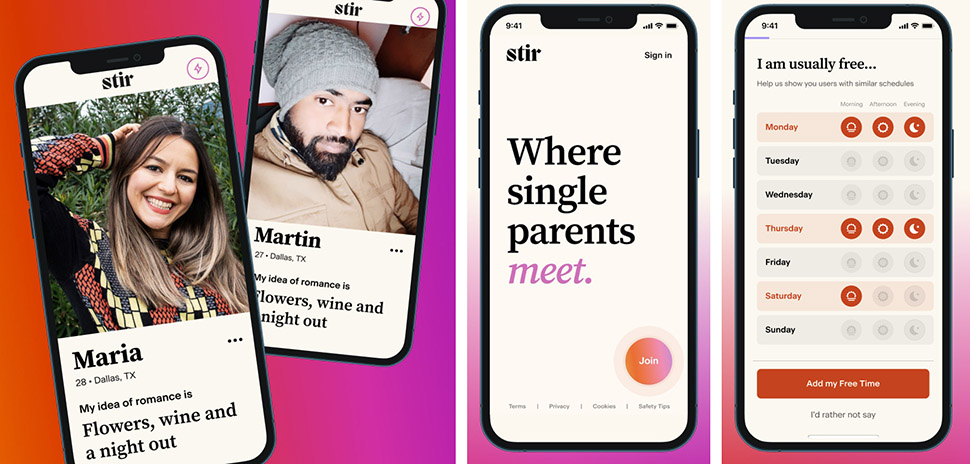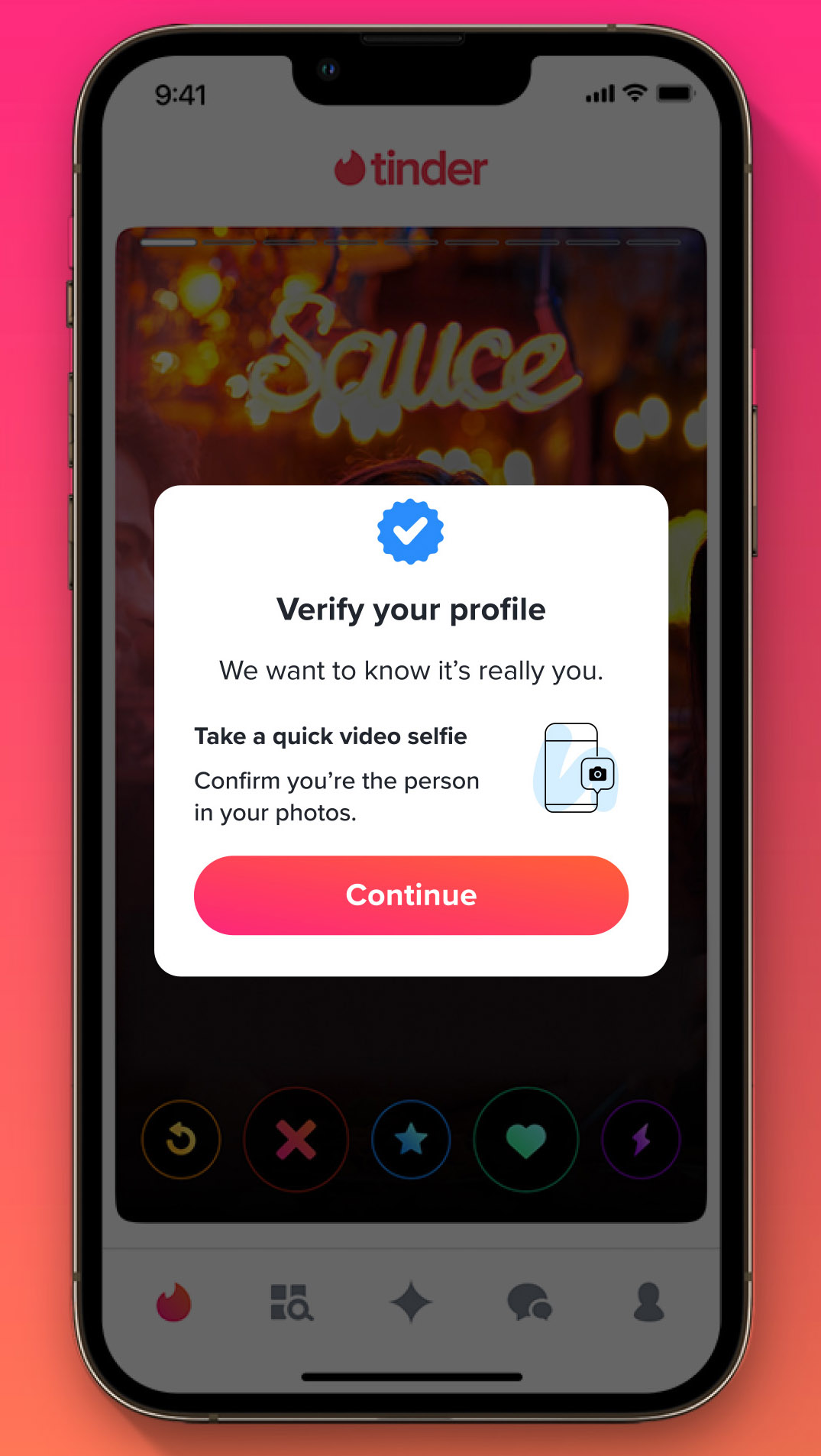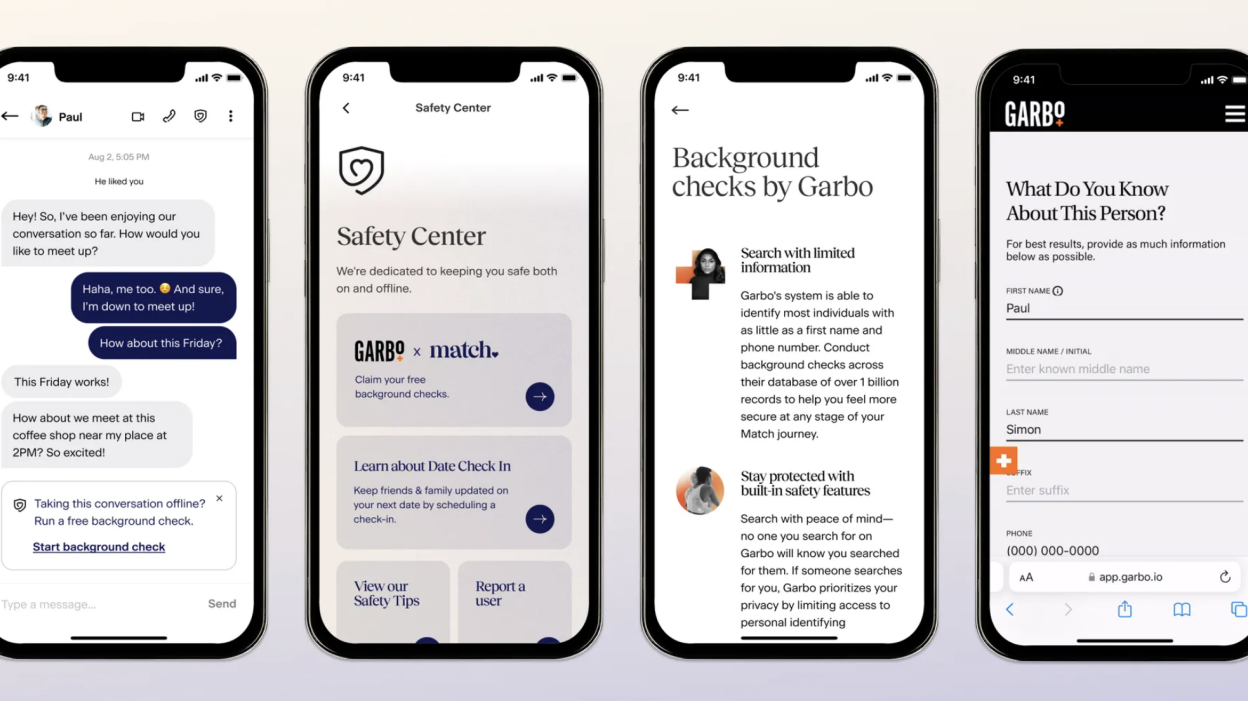Match Group, the Dallas-based tech giant renowned for dating brands including Match, Tinder, Plenty of Fish, OKCupid, OurTime, and Hinge, has a new battle cry: “Bot off!”
As the digital dating powerhouse observes Internet Safety Month in June, the company’s efforts to protect its worldwide user community from online fraudsters are taking center stage.
On average, Match Group removes 44 spam accounts every minute across its brand portfolio, according to a company news release. In the first quarter of this year alone, the company says it foiled nearly 5 million spam and bot accounts at signup or before a user saw them.
It’s a massive—and ongoing—battle for the tech innovator that continues to roll out new dating brands like Stir, an app designed to connect single parents, and Archer, a “social-first” dating app for gay, bisexual, and queer men.

Match Group launched Stir, a dating app for single parents, last year. Now daters on the app can run background checks on their potential matches with Garbo, which piloted on Tinder. [Image: Match Group]
“Cyber criminals use various tactics and forms of communications across online platforms, from email and text phishing scams to social media platforms and online dating services,” the dating tech giant said, citing internet crime experts.
Match Group said the company continues investing in advanced detection and vigilance to rid its platforms of bad actors and digital impostors exploiting them.
Crushing spam and bot accounts with tech and vigilance
For years, the digital dating landscape has been littered with users embedding links in their profiles, some redirecting unsuspecting love-seekers to other platforms for monetization.
The practice not only raises safety concerns, but distorts the user experience. That’s why Match Group says it continues to up the ante on its commitment to provide users with a safer, more enjoyable environment.
Jess Johnson, director of safety product at Match Group, said a combination of tech, human moderation, and user education help encourage reporting of suspicious activity, which helps the company remove the “vast majority of spam at sign up or before a user ever sees it.”
The company is “continuously enhancing our spam prevention tools to help make them more effective,” Johnson said.
It’s also heavily investing in machine learning technology to fortify its defenses to “proactively detect, prevent and remove spam across Match Group’s global portfolio.”
Crackdown on social handles used for promotion
Launched in 2012, Match Group’s flagship app Tinder has been downloaded over 530 million times. Available in 190 countries and more than 45 languages, prioritizing ways to help make Tinder a safer place to meet someone new is key.
Last month, the “world’s most popular app” revised its Community Guidelines for acceptable user behavior. A key component of the changes is the crackdown on social handles in public bios used for promotion or advertising, something noted as a common spamming practice.
Tinder will remove social handles from “public bios that advertise or promote their social profiles to gain followers, sell things, fundraise, or campaign,” the company said.
Tinder tools
Rory Kozoll, SVP of product integrity at Tinder says the flagship brand has an “exceptional team with deep experience in detecting bad behavior, including spam.”
That makes the brand a great place to test new tools.
“Fraud detection is just one of many efforts we deploy to remove potential fraudulent accounts, and it is something we will continue to invest in, Kozoll said in a statement.
Swipe right with confidence
Tinder has led the Match Group portfolio in rolling out other safety features, such as its Photo Verification with selfie video in April.

[Match Group]
The new feature lets members prove their identity more securely. Users who are Photo Verified can now request their matches to provide a video selfie before initiating conversations, giving them greater control over their interactions, according to the company.
Photo Verified members can opt to receive messages exclusively from other verified members. The addition of video selfies takes the verification process to the next level, ensuring the legitimacy of checkmarks, according to Tinder. Tinder will prompt all new members to undergo Photo Verification when creating a profile, making the process more prominent, the company said.
Tinder noted that Photo Verification is highly valued by its members, with almost 40% of them obtaining the Photo Verified blue checkmark.
Plus, for its “18- to 25-year-old members, being Photo Verified gives them a 10% higher chance to match,” Kozell said
Following enhancements, the tools were implemented on Hinge, Archer, and Plenty of Fish, and Match expects more of its brands to follow suit.
Garbo: Background check platform
Last year, Tinder piloted Garbo, a background check tool designed to enhance user safety. Garbo is a nonprofit that specializes in providing information about individuals’ histories of violence, harassment, and abuse.
The user safety tool has since expanded to Match Group platforms Plenty of Fish, Match, and Stir. Background checks cost $3.25 each after two free searches, and the funds go directly to Garbo.
Match Group’s partnership with Garbo made it one of the winners of Fast Company’s 2023 World Changing Ideas Awards. Match Group has collaborated with Garbo since making an undisclosed investment in the nonprofit background check platform in 2021.
“By simultaneously investing in and building innovative online tools, we are also adding an additional level of security and confidence for users across the portfolio,” Kozell said.

[Match Group]
Internet Safety Month: United against online fraudsters
Many countries, including the United States, Canada, the United Kingdom, Australia, and others, observe Internet Safety Month in June. While no central governing body determines Internet Safety Month, it’s an initiative that’s gained significant recognition and support from different entities concerned with online safety.
The U.S. Senate passed a resolution in 2006 designating June as National Internet Safety Month.
![]()
Get on the list.
Dallas Innovates, every day.
Sign up to keep your eye on what’s new and next in Dallas-Fort Worth, every day.


































































